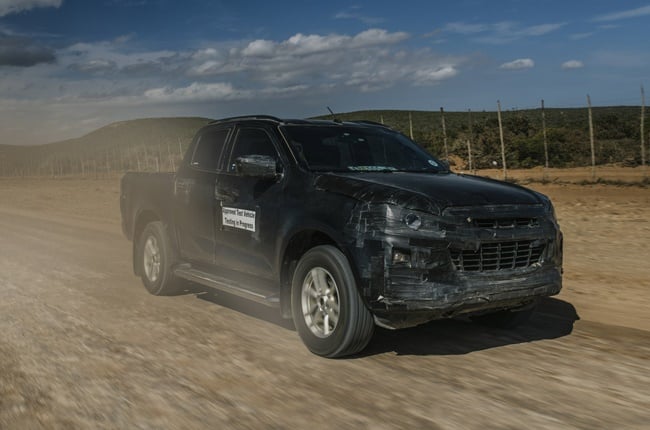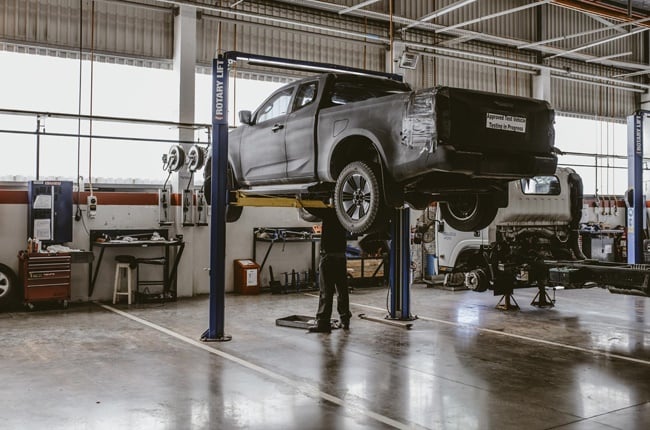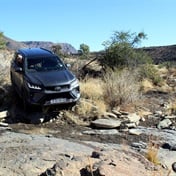- The arrival of the new Isuzu D-Max is set for early 2022.
- It could coincide with that of the new Ford Ranger.
- The new D-Max will be built in Port Elizabeth.
- For more motoring stories, go to www.Wheels24.co.za
Isuzu enjoys tremendous brand loyalty in South Africa.
Despite its bakkies never having the most powerful engines, the highest number of gears, best ground clearance or advanced cabin digitisation, Isuzu's D-Max remains very popular.
One of Isuzu's significant advantages in the South African market is that it functions as an effectively undiluted bakkie business. The result is that Isuzu South Africa's entire product planning, marketing and after-sales support structure is tailored to meet the exact demands of local bakkie customers.
Disrupting business
This singular bakkie focus has its weaknesses: infrequent product changes and the potential to have your entire business disrupted if anything happens to the KB/D-Max supply chain.
Isuzu's local customers have become accustomed to very long product cycles, patiently waiting for the next generation KB/D-Max, whilst honourably ignoring rival product from Ford, Nissan or Toyota.
The expectation for Isuzu's third-generation D-Max is enormous, and that has now been tinged with a slight bitterness as the new bakkie will be late, only arriving in South Africa in 2022.
With D-Max being locally built, and Australian Isuzu owners currently being able to trade their bakkies for the new one, there is understandable frustration at the delay into 2022.
READ: A South African favourite on the horison - Here's when we can expect Isuzu's new D-Max
All-new Isuzu D-Max undergoing testing. (QuickPic)
Why is the D-Max really arriving so late?
If Isuzu's new bakkie range was scheduled to be here in early 2021, why the postponement until 2022?
The global coronavirus pandemic has disrupted suppliers and kept engineering test teams – who should have been out clocking huge mileages earlier this year – mostly at home. Isuzu South Africa's position is no different from many other vehicle companies in this regard. A workaround is available, sourcing premium specification D-Max double cabs from Thailand, although import costs could make pricing unattractive.
The issue of localised testing and production adaptations have truth to them, but one of the most significant delay factors must be the continued electricity supply disruption. This has unquestionably complicated the testing and integration of Isuzu's new industrial engineering machinery, required to build the third-generation D-Max in Port Elizabeth.
Isuzu has mentioned that localised dust sealing, loadbox reinforcement, suspension components and tyres are not negotiable in terms of its development timetable. Those are noble goals, considering that KB and D-Max bakkies have always been praised for their South African gravel road ride quality – much of it credited to the Port Elizabeth engineering team's tweaks.
WATCH: Three new bakkies that could unsettle the cart when they arrive in SA
In a time of crisis, it must be questioned why the Australian experience could not have benefitted Isuzu South Africa. Environmental conditions in the two countries are remarkably alike, with similarly fine dust and brutal gravel roads. Surely the Australian bakkie market, which is bigger than South Africa's, would have requested adequate dust sealing, loadbox strengthening and suspension upgrades with the new D-Max. All changes that could have been applied by Isuzu South Africa, thereby avoiding the delay which has now transpired?
A reason why Isuzu South Africa has not used any Australian gravel road specification for its localised D-Max adaptation is the pressure to source indigenous componentry.
Benefitting from the government's generous motor industry development plan, Isuzu is required to source lots of local parts for its D-Max. The pressure some of those suppliers have been under, triggered by the hard lockdown, is perhaps partly to blame for the South African D-Max project delay.
All-new Isuzu D-Max undergoing testing. (QuickPic)
Ranger is now a very big risk
Beyond the issue of frustrating customer expectations, the interruption of D-Max's local introduction until 2022 has opened huge competitor risk for Isuzu South Africa.
Bad news for Isuzu is that Ford's next-generation Ranger will go on sale locally in early 2022, around the same time as new D-Max.
For Isuzu, the delayed timing on D-Max's local debut is not ideal. Rival product planners try to launch their new bakkies when there is not a competitor doing the same, in part to avoid an initial price war that discounts the future resale value of their products.




 Publications
Publications
 Partners
Partners













